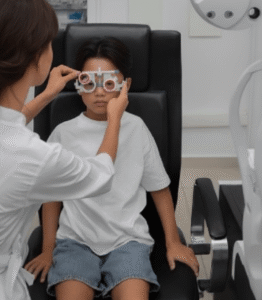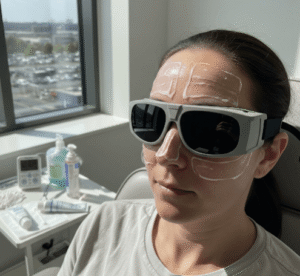Overview
Autoimmune Lymphoproliferative Syndrome (ALPS) is a rare genetic disorder characterized by the immune system’s failure to regulate lymphocyte (a type of white blood cell) survival properly. This leads to an abnormal accumulation of lymphocytes, causing enlarged lymph nodes, spleen, and liver, along with autoimmune symptoms. Early diagnosis and treatment can help manage symptoms and prevent complications.
What is Autoimmune Lymphoproliferative Syndrome?
ALPS results from mutations affecting the programmed cell death (apoptosis) pathways, particularly involving the Fas gene, which is crucial for lymphocyte regulation. Defective apoptosis causes prolonged survival of lymphocytes, leading to lymphadenopathy, splenomegaly, and autoimmune manifestations such as hemolytic anemia and thrombocytopenia.
Symptoms
- Enlarged lymph nodes (lymphadenopathy)
- Enlarged spleen (splenomegaly)
- Autoimmune cytopenias (anemia, low platelets, or low white blood cells)
- Fatigue and pallor from anemia
- Recurrent infections
- Skin rashes and other autoimmune symptoms
Causes
ALPS is caused by genetic mutations, most commonly in the FAS gene, but can also involve other genes like FASLG and CASP10. These mutations disrupt normal apoptosis, resulting in immune system dysregulation.
Risk Factors
- Family history of ALPS or related immune disorders
- Inherited genetic mutations in apoptosis pathway genes
- Usually presents in childhood but can be diagnosed in adults
Complications
- Increased risk of lymphoma (cancer of lymphatic system)
- Severe anemia or bleeding due to low blood cell counts
- Repeated infections due to immune dysfunction
- Chronic autoimmune disorders
Prevention
- Genetic counseling for affected families
- Early diagnosis and treatment to prevent complications
- Regular monitoring for lymphomas and autoimmune symptoms
Treatment Options in Korea
South Korea provides advanced immunology and hematology care for ALPS patients, including genetic testing, targeted therapies, and multidisciplinary management.
- Diagnosis
- Blood tests showing elevated lymphocytes and autoimmune cytopenias
- Flow cytometry to detect abnormal lymphocyte populations
- Genetic testing for FAS and related gene mutations
- Imaging to evaluate lymph node and spleen size
- Medication
- Immunosuppressants such as corticosteroids and mycophenolate mofetil to control autoimmune symptoms
- Sirolimus (rapamycin): An mTOR inhibitor showing promising results in controlling lymphoproliferation
- Treatment tailored to symptoms and severity
- Monitoring and Supportive Care
- Regular blood counts and immune function tests
- Surveillance for lymphoma development
- Treatment of infections promptly













